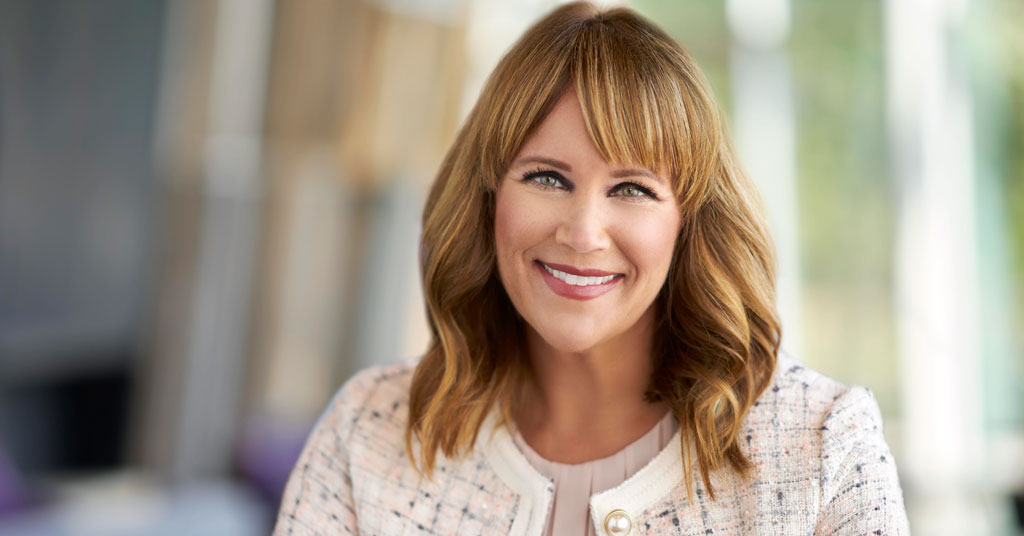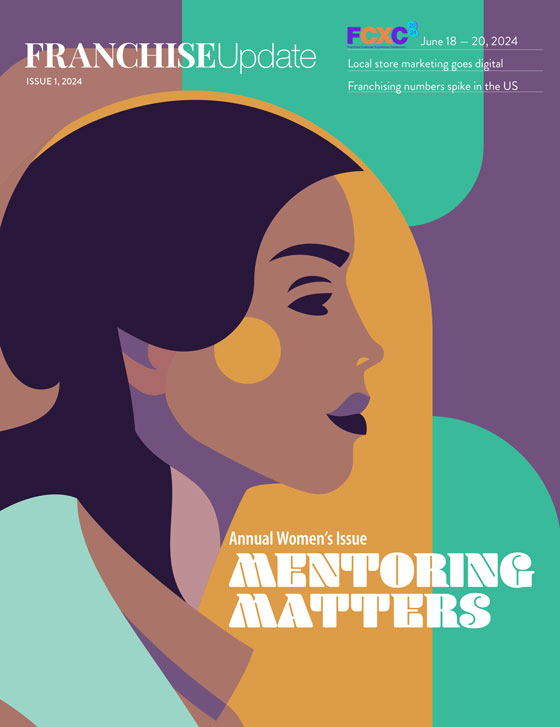Female Mentors: April Anslinger Leading the Next Gen to the C-Suite

Name: April Anslinger
Title: Global Chief Marketing Officer
Company: Self Esteem Brands (Anytime Fitness, Waxing the City, Bar Method, Basecamp Fitness, and Stronger U)
Years in Franchising: 3
Number of units: 5,200+ club and studio locations in 42 countries and on 7 continents
Can you describe the role mentoring has played in your career? The most profound mentors in my life haven’t been those with a formal mentoring title. They cared enough to help me find and learn my way forward and upward even without the mentor title. They were intentional about it, and I’m grateful. Early in my career, I had a strong, female boss who continued to care about me after we parted ways, and she continues to be one of my biggest mentors today. As my career has progressed, mentors have appeared in my life as peers, colleagues, and leaders. I’ve realized that mentoring happens when both parties are willing to give thoughtful and empathetic insight and willing to be curious and vulnerable. They’re ready to put insight into action.
Why is mentoring important for female franchise leaders? Mentioning women in business is not just important—it’s essential. We need to be intentional about building each other up, connecting each other, and celebrating each other. It can make or break business success and, more importantly, our relationships with our careers and mental health. Take stock of the women in your life that you are building up. If you aren’t, find the women you can and want to help!
What are the key elements of a good mentoring relationship? Intentionality and purpose: As mentors, we have to embrace the mindset of being generous leaders and give that leadership and guidance away to those we know are hungry for it. We’re not just mentors because we want to be; we are mentors because we take action to be mentors.
Trust, respect, empathy, vulnerability, and humanness: These things have to happen on both sides of the equation to make it work. Trust that the mentor truly has our success in mind when sharing sometimes hard truths, and trust that mentees are internalizing insight and making it actionable. Have respect for each other’s time and know what’s going on in each other’s lives. Everyone is human with high and low moments. When you show and embrace those moments, it builds trust.
What are the benefits of mentoring programs for female leaders looking to advance their careers? Mentoring helps everyone become better leaders. When we’re sharing knowledge, we’re putting leadership development into practice. When we’re learning from others, we become better, so we should do it for our entire careers. Mentoring programs are an important piece of the mix because not everyone knows how or where to be a mentor or how to be mentored. Formalized programs remove the awkwardness and provide platforms for willing and excited participants.
What should the mentoring process include? Accountability, action, and grace. Accountability is about committing the time, and deliberate action ensures the time spent for both parties is fruitful. Grace is critical because we need to remember that we’re all human and continuing to grow and evolve.
How is a mentor different than a coach? I think mentoring and coaching are more alike than they are different. Both are about sharing experiences, knowledge, and insight to empower others. There’s no need for paralysis by analysis here. Be intentional to give and receive to help others (especially women) grow into their careers and strengths.
What role did mentoring play in your path to the C-suite? I wish mentoring had played a bigger part. I had a few incredible leaders and colleagues who chose to mentor me. But truthfully, I had to find my own way a lot. I didn’t need to do that, and I just don’t want that for anyone else. It’s challenging. It’s lonely. And it’s hard. There is more trial and error than there needs to be. So, I’ve committed myself to helping pave the way for upcoming leaders to help them learn from my wins and my mistakes. I want to use my platform for good and inspire others to do the same.
How has what you learned from a mentor helped you navigate difficult career challenges? One of the most important things you learn in your mentoring relationships is that what you are working through isn’t new. You are not alone. Difficult career challenges have been faced by all leaders. There is a lot of solace in this. It reminds you that there are plenty of people to help you through the tougher times.
How did mentoring help you in other business relationships? Mentoring has made me a better listener even for things that go unsaid. It also has taught me grace in understanding that everyone has a backstory, and it shapes their thought processes. True listening and genuine grace earn trust, credibility, and quality in every relationship in life.
In what ways has mentoring helped you build confidence in your decision-making? Most of us need affirmation. And that affirmation is what gives us confidence in our answers and our thought processes. In the best mentoring relationships, I’ve learned how to make decisions—when to trust my knowledge and my gut, how and when to seek insight, and how to communicate. Learning how to make decisions is what matters most.
In what ways has mentoring helped you set goals and achieve objectives? When you are the mentee, the mentor is usually someone who has more experience than you do. With that experience, they tend to understand the importance of setting goals and achieving results. They help to build the same discipline with the mentee because setting goals and achieving results are critical to job success.
What were the three most important things you learned from mentoring? 1) Intentionality and willingness—nothing happens if we’re not focused on making it happen. There has to be a desire to learn and grow. 2) Vulnerability and curiosity—be curious enough to ask genuine questions and vulnerable enough to realize when we need help or perspective. 3) It never ends—none of us are ever done learning, so find a mentor who can help you continue to grow.
How can mentoring help the next generation of women on their path to the C-suite? Mentoring helps us embrace priorities that include yourself and not just that of pleasing other people. It’s a constant reminder that you must choose to take care of yourself and your career. It helps us find common ground and points of connection no matter the generation, the culture, or the gender. Our mentoring relationships help us grow and strengthen our networks, which helps us grow businesses and credibility within our businesses.
What advice do you have for female executives considering mentoring? There isn’t a prescription for mentoring. There isn’t one way to go about it. Mentoring programs aren’t for everyone, but intentionally mentoring others and allowing yourself to be mentored will only help us make a bigger impact in our corners of the world. Be vulnerable, have grace, and help make a difference in the lives of other young women!
Share this Feature
Recommended Reading:
Comments:
comments powered by DisqusFRANCHISE TOPICS
- Multi-Unit Franchising
- Get Started in Franchising
- Growth
- Operations
- Open New Units
- Leadership
- Marketing
- Technology
- Legal
- Awards
- Rankings
- Trends
- Featured Franchise Stories
FEATURED IN

Franchise Update Magazine: Issue 1, 2024






 The franchise listed above are not related to or endorsed by Franchise Update or Franchise Update Media Group. We are not engaged in, supporting, or endorsing any specific franchise, business opportunity, company or individual. No statement in this site is to be construed as a recommendation. We encourage prospective franchise buyers to perform extensive due diligence when considering a franchise opportunity.
The franchise listed above are not related to or endorsed by Franchise Update or Franchise Update Media Group. We are not engaged in, supporting, or endorsing any specific franchise, business opportunity, company or individual. No statement in this site is to be construed as a recommendation. We encourage prospective franchise buyers to perform extensive due diligence when considering a franchise opportunity.